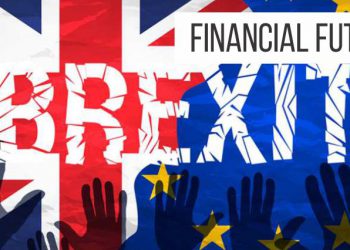What if you are in partnership, and for your own sake you find it more profitable to be isolated. Obviously, one would think for days or months and if it seems rewarding you would definitely go with it. So, does UK decided, Prime Minister Theresa May, in the wake of the Referendum– in which everyone’s vote would be accounted whether the UK should leave or remain in European Union (EU), with winning vote in favor of referendum which turned out to be maximum percentages to go with withdrawal from EU which is popularly known as Brexit, a portmanteau of “British” and “exit”. So, you might be wondering what would be the upcoming benefits seen by former home secretary Theresa May that she represented this big step. It is predicted that UK will get freedom from the rules, as well as the costs, which comes uninvited with EU membership which would be more fruitful for Britain.
Bauxite is the biggest step backward since the World War. Like two sides of a coin, some stands by with Brexit and some have even resigned with fear of party split. Under an optimistic scenario, UK anticipates to have a Free Trade Agreement (FTA) with EU, but losses can’t be ignored at same time. With Brexit, two new terms evolved which has become hot topic for debate, “hard” Brexit could involve denial of UK to compromise on free movement of people so that access to the EU single market is maintained. At the other end of scale, “soft” Brexit which is allowing free movement of people. All this soft and hard Brexit will definitely affect the Britain’s economy but apart from this, let’s just see the consequences of Brexit on itself, EU and India.
How India takes Brexit
India is considered second biggest source of FDI for Britain. UK proved to be a gateway into the rest of Europe for India, but if it Brexit is applied, Britain won’t remain that attractive for Indian FDI. Britain would not wish to lose out on capital coming in from India. Britain is expected to try extra hard to woo Indian companies to put its capital by providing bigger incentives in terms of lesser regulation, tax breaks, and other financial incentives. If Britain withdrawal from EU is due to complex bureaucratic regulatory structure, a deregulated and freer market in Britain is something India could expect. For companies with manufacturing in the UK, access to a single market is essential, as their products can get uncompetitive if they had to pay import duties. If the UK follows Soft Brexit and becomes a member of the European Economic Area (EEA), like Norway, it could be great advantage for India in terms of trade. The British government can also reduce tariffs and boost trade. If the UK and India finalise a free trade agreement, it will boost trade.
The weaker yuan could be threatening to India’s export. Indian exports is expected to face increased competition from cheaper Chinese products—from steel to textiles—just not specific to European markets but third country export markets such as the US, reason is relative weakness of the yuan vis-a-vis rupee against the dollar.
Not just trade, Indian tourism will get weaken as forex income may decline, as the downfall of pound and euro will make it expensive for European tourists visit India. Price competitiveness of India’s IT companies may also suffer. A new requirement may occur with Indian IT companies to establish separate offices and hire newer teams for the UK and the EU after the fallout, which may put heavy expenditure burden on IT companies further in the near-term. So, Sensex and Nifty will tumble in the short-run and there will be overall pressure on the rupee. However, in the longer run, Brexit could be an additional factor for strengthening India-UK economic relationship as the UK seeks to recoup for loss of preferential access to EU markets.
Higher fees to be paid by Students
There are uncertainties, particularly among students, that they will find themselves paying higher fees for being “international students” rather than the EU rates when they travel to or from UK for studies, and that there might be visa restrictions. If UK is expected to withdraw from already existing agreements on freedom of movement, future EU students may be required to apply for a Tier 4 student visa or a short-term study visa in order to study in the UK.
An essential tactful step
If UK exits the EU, the consequences, be it economic or political could be really serious. If both the parties want less economic and financial friction then they should have amicable separation agreement, but political considerations, including the desire of the rest of the EU to prevent Brexit emulation, could become a far more damaging outcome, not just for the UK.
A loss in soft power for the rest of the EU following Brexit would be near certain. Brexit is likely to further boost (intra-national and inter-national) political fragmentation in the EU and increase the risk of further EU and Eurozone disintegration. Brexit could bring very severe political ramifications for the rest of the EU, even if the immediate economic effects continue modest. EU with UK’s exit would be an even more impaired regional and geo-political player than the current EU, which already lays far below its economic weight as regards regional and global diplomatic, security, strategic, and military matters. The step from soft power to no power could well be a little one.

Insights Success stands as the epitome of trust and authority. It has earned its reputation as the foremost source of business intelligence, providing readers with a gateway to the pulse of Bharat’s advancing business landscape.
Quick Links
Enquiry
info@insightssuccess.in
for more information on advertising opportunities with Insights Success magazine.
8793630422 / 24
Reach out to Us
Insights Success Media and Technology Pvt. Ltd.
512, Brand Square,
Kunal Icon Rd, Pimple Saudagar,
Pune, Maharashtra 411027

